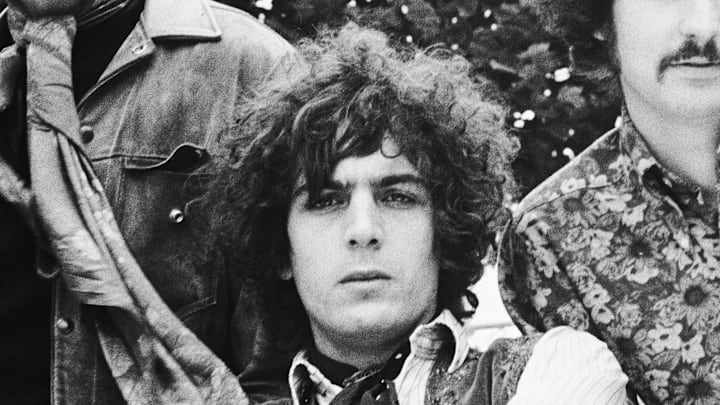Roger Keith “Syd” Barrett, one of the founding members of Pink Floyd, and the band’s undeniable leader in its initial phase is not only considered as the archetype for the weirdness/genius combination in rock music but also as one of the progenitors of psych rock as it is know today.
Barrett was behind Floyd’s first three singles (“Arnold Layne”, “See Emily Play”, “Apples And Oranges”) and at the same time wrote all bar one song on the band’s debut album The Piper At The Gates Of Dawn (1967), including one of the band's all-time classics “Interstellar Overdrive.”. Yet, by the band's second album A Saucerful of Secrets (1968), he had only one songwriting contribution (“Jugband Blues”), and by the album's release, Barrett was out of the band.
That ‘departure’ might have been in body, but possibly not in spirit, as some of the band’s creations, the "Shine On You Crazy Diamond" song and Wish You Were Here album were directly or indirectly devoted to Barrett. So, what is the story behind Barrett’s "departure" from Pink Floyd?
Syd Barrett didn’t leave Pink Floyd, he was practically kicked out
Well, actually the story is a bit more complicated than that, as the other band members prefer saying that Barrett was ‘eased out’ of the band, rather than kicked out. After all, David Gilmour, Barrett’s old school friend and the man who replaced him in the band and Roger Waters played on both ‘regular’ Barrett solo albums (The Madcap Laughs and Barrett, both 1970). What really happened then?
Pink Floyd, like many other rockers at the time started out as a covers band, and it was under Barrett’s influence and guidance, fueled by his increasingly heavy drug use and detailed reading of fairy tales and Eastern mysticism that the band turned into the key for the development of British and indeed, world psychedelia.
Barrett is also credited with a number of playing innovations including the introduction of distortion and feedback in the guitar sound, his technique of plugging a guitar into an echo box and sliding a Zippo lighter down a fretboard.
Yet, as Barrett’s use of drugs, particularly LSD progressed, coupled with speculations that he suffered from schizophrenia (his family denied any such or similar health issues), his behavior became more and more erratic, with Barrett expressing signs of depression, hallucinations, and memory lapses. He would disappear for days and even have periods of catatonia.
It all started creeping into Floyd's public and live performances, with Barrett often detuning his guitar during songs, strumming a single chord, or not playing at all. Roger Waters recalled a story when Barrett came to a practice session with a new song called “Have You Got It Yet?”. Seemingly simple at first, it turned impossible to learn for the rest of the band, as Barrett kept changing the arrangement mid-song, singing, “Have You Got It Yet?”
That was about the time when the band started’ easing out’ Barrett out of the band. Nobody really wanted to tell him that he was out so the members started evading him going to gigs without him and letting him sit in the recording studio’s reception area during the recording sessions for the second album. Barrett himself realized he was out when the band issued an official statement in April 1968.
Yet Barrett's association with the band in body and spirit with Pink Floyd continued. He kept cropping at the band’s gigs, giving stark stares to Gilmour, his old-time friend and replacement in the band. Eventually, Barrett ended up in a psychiatric ward, but after a brief recovery, he recorded his two solo albums with the help of Gilmour and Waters, among others. Both albums are to this day considered psych folk classics and progenitors of lo-fi.
Then while the band was recording its Wish You Were Here album, Barrett somehow appeared in the studio and it was at the moment the band were remixing “Shine on You Crazy Diamond.”
After that moment Barrett turned into a true recluse, devoting his time to painting and gardening until he passed away in July of 2006 as he was suffering from pancreatic cancer.
